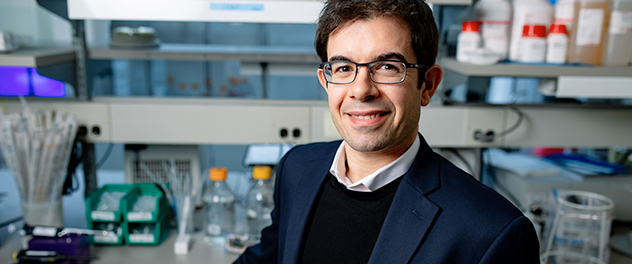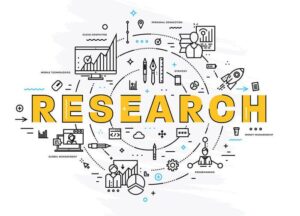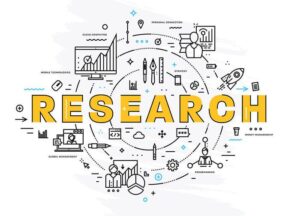
CEO and Founder at The Institute for Human Optimization
Dr. Anil Bajnath, MD, IFMCP, ABAARM, is a board-certified family physician who specializes in precision and anti-aging medicine. His practice offers a range of services from conventional preventative screening guidelines to precision personalized healthcare modalities including individualized nutrition, genomic medicine, advanced biomarker testing, microbiome analysis, and biometric lifestyle monitoring.
Dr. Bajnath sees patients in his clinic in Annapolis, Maryland, and also offers telemedicine consultations. To schedule an appointment with Dr. Bajnath or learn more about his research, click here.Epigenetics | Precision medicine | Omega 3-6 ratio | Omega index | Fasting | Anti-aging goals | References
So many people are looking for the “perfect” recipe for longevity or anti-aging, that magical formula for longer and healthier life.
You might have attempted to discover the ultimate anti-aging diet, the perfect exercise routine for longevity, or the best supplements to activate longevity genes, the potential methods are endless!
But the more we learn about genetics, aging, and lifestyle, it becomes clear that the universal “perfect” fountain of youth blueprint doesn’t really exist. That’s because there’s no one-size-fits-all longevity plan.
In this article series, we collaborated with Dr. Anil Bajnath, MD, a pioneer in precision and anti-aging medicine. Dr. Bajnath shared some of the core principles of his personalized approach to aging and why it may revolutionize our ability to extend our lifespan and healthspan.
We are all unique
Every one of us has a unique genetic makeup which we inherited from our parents. This influences how our body responds to various inputs from our environment.
We’re also learning more and more about epigenetics – the relationship between environment and genes. This is what determines which genes will be expressed and which will not. Or, in other words, when genes will be turned on or off.
Even though our genes can’t be changed, epigenetics gives us the capacity to change our health outcomes by influencing the expression of individual genes. Our lifestyle choices and behaviors can change how our genes will be expressed.
And what we have learned is that similarly to your unique genetic makeup, your (epigenetics) gene expression is also completely individual.
So, the only way to create an ideal longevity “recipe” is to have your genes expressed in the way that best supports your health according to your genetic and epigenetic makeup, not someone else’s. This means your journey will involve discovering the variables that improve your individual health. I believe that personalized medicine is the future of anti-aging medicine and healthcare. And the future, to some degree, is already here.
While this area of study is incredibly exciting, what does the research say?
How good science may obscure individual differences
Think about a large research study, in which researchers are asking whether a particular intervention increases people’s longevity. This could be a dietary pattern, a supplement, an exercise program, a drug – anything. To know whether the intervention is beneficial, we often look at a large group of people, some of whom got the intervention while others didn’t. (There are a lot of different ways to create, or find, these two groups, but this is the basic idea.)
These types of studies are the most accepted way that we can start to figure out what really works and what doesn’t. However, it’s important to recognize that when we look at a large group of people and just take the average, we’re obscuring a lot of individual differences. We might find that a certain supplement or drug is beneficial overall – but maybe a few people in the group were actually harmed by it, while others experienced a significant benefit. Also, how do we know this intervention is the optimal one for each person?
The “N of 1” precision medicine approach to aging
When you’re considering how you’re going to optimize your own health and longevity, it’s important to recognize that you’re not the average of a large group. You’re a unique individual, and it’s likely that you have some significant differences from the average.
My colleagues and I sometimes refer to this as an “N of 1” approach. “N” is a commonly used notation for the number of subjects in a scientific study. However, because you’re unique, you’re the only subject in the study of your own health. You’re an individual – an N of 1.
The best way to optimize your health is to take note of the impacts of various interventions on how you feel and how your body reacts. A big part of this approach includes testing various biomarkers of longevity to get a good idea if a certain practice is helping or harming you. Then you can adjust as needed to get the results that you’re looking for. You can still use large studies as a starting point for deciding what to try because they certainly do have value. You just need to keep your awareness on what’s working and what’s not.
This approach is sometimes known as precision medicine. The goal is to precisely tailor medical care to the needs of a particular individual. We can use this type of approach to help us personalize a lifestyle plan to best support longevity and healthspan.
Let’s take a look at a few examples of precision medicine in action.
The omega-3 to 6 ratio and healthspan
You may have heard that the balance between omega-3 and omega-6 fatty acids is essential for good health. A higher ratio of omega-6/omega-3 was associated with a higher risk of many chronic diseases, while a lower ratio seems to decrease the risk[1].
Even more, omega-3 fatty acids have demonstrated potent anti-inflammatory properties in several studies showing potential in helping reduce symptoms of inflammatory conditions such as rheumatoid arthritis, psoriasis, asthma, and inflammatory bowel disorders[2].
Now, with chronic inflammation playing such a key role in ageing, shouldn’t we all just mega dose omega 3’s to increase our longevity?
Well, before you go to the store and start ordering fish oil supplements in bulk, there’s something you should know about omega-3 to 6 ratio. It’s called the omega 3 index.
Omega 3 index and longevity
Recently, we’ve discovered the importance of a test called the omega-3 index. This is a simple lab test that many doctors aren’t even aware of yet, that can have a significant influence for promoting longevity in an individual.
The omega-3 index is a measurement of the ratio of omega-3 fatty acids (specifically EPA and DHA) to other fatty acids in the cell membranes of your red blood cells. Red blood cells are used because they’re the most accessible type of cell and they’re likely a good representation of what your cell membranes are generally made of. The test measures what percentage of the fatty acids in your cell membranes are omega-3s.
A study published last year in the prestigious American Journal of Clinical Nutrition (AJCN), showed that people with an omega-3 index of 6.7% or greater had a life expectancy that was extended by 4.8 years[3]. This is similar to the life extension that can be achieved by quitting smoking, so we know that the omega index is a powerful predictor of longevity.
The exciting news here is that this test is highly actionable. Measuring your omega-3 index is an effective way to determine whether you’re optimizing your intake of essential fatty acids:
- If you have a high omega-3 index, then your diet is working well for you. Therefore, it might not make sense for you to add a supplement with extra omega-3s.
- If your omega-3 index is low, you might want to focus on including more omega-3s in your diet or supplementing to bring your levels up.
Why optimal balance is key
The omega-3 index is a great example of how we can use a single test to carefully tailor the approach to an individual and optimize the outcomes.
Now, you may be wondering after reading all these omega 3 benefits, couldn’t we just take a large amount every day?
Turns out, more is not better, even in the case of omega 3’s.
There are some studies on omega-3 supplementation that I think really illustrate how important it is to consider the individual balance, rather than the more is better approach.
In the last two years, a few studies linked high intake of omega-3s to atrial fibrillation, which is an abnormal heart rhythm that can lead to issues like strokes[4]. If you look at these studies, they used incredibly high doses of omega-3s. This isn’t the tablespoon of cod liver oil that your grandma fed to you.
These products have been developed by pharmaceutical companies and I believe that the problem is that the dosage they use is far too high. The companies jumped on the idea of omega-3s being beneficial, and developed products with such high dosage, that they may cause health problems.
This doesn’t mean that omega-3 fatty acids are not beneficial if they’re consumed at the right dose by the right person. These negative outcomes could have been avoided with a precision medicine approach. In the omega 3 case, with just one test- the omega-3 index.
How long should I fast for longevity?
Another common example that is very popular in the anti-aging and longevity circles is fasting. By now, the potential of fasting to extend lifespan and healthspan is well established. But which fasting protocol is the best? How long should one fast for best results? Clearly, more fasting is not always better.
I find that this is another area where people may differ from each other. While many studies have demonstrated that fasting has beneficial effects overall[5], the optimal length of a fast depends not only on a person’s physiology, but also on their own circumstances and what they are trying to achieve.
For instance, I’m sometimes very busy in my professional life. If I need to do quite a bit of teaching and presenting at conferences during a particular week, then I wouldn’t choose that week to do an extended fast. It would impair my ability to perform cognitively at my highest level.
As another example, many of my patients are competitive athletes. While they’re in training, a fast may not be beneficial for them because they’re expending a lot of energy and need to replenish those resources.
It’s also important to remember that there are a variety of different reasons that someone may be fasting. For example, some people fast for spiritual purposes – it’s common to experience a sense of clarity, peace, and connection during an extended fast. Fasting is an important part of many spiritual traditions. If this is your goal, then you may need to fast for a longer time to cultivate this state of consciousness.
By contrast, someone who’s fasting for the purposes of improving physical health may do well with a shorter fast, which they may perform more frequently to stimulate processes like autophagy.
Be mindful of your individual anti-aging goals
I find that any conversation about anti-aging and longevity should always consider the deeper individual meaning of “anti-aging”.
We all appreciate longevity, especially a greater health span, which gives us the ability to have more years that are free of pain and disability. However, what’s a longer healthy life means, may differ between individuals.
For example, for me, I love training Brazilian jiu jitsu. This is a practice that lights me up and makes me feel great. I want to be able to do it for as many years as I possibly can. So, as I age, I want to maintain the ability to do some intense physical training and to avoid becoming fragile and easily injured.
When you are trying to discover your longevity blueprint take some time to get clear on what your values are and what’s important to you as you age. What makes your life worth living? What is your purpose? What are your priorities? These questions are fundamental to creating your own longevity plan.
Where do we go from here?
The field of precision medicine is vast and is changing every day as new research is emerging. There are thousands of tests available now, looking at various gene polymorphisms and biomarkers that can be used to assess individual health and genetics. Some of these tests such as the omega-3 index are very useful and actionable, while others aren’t there yet. In fact, in some cases, the companies that sell these tests tend to over promise or misrepresent the research.
I find that working with the right health practitioner in anti-aging and precision medicine is key, especially since a lot of the data is constantly evolving. Not all medical professionals are up to date with the latest longevity research or anti-aging tests, so they can offer the best options for each individual.




